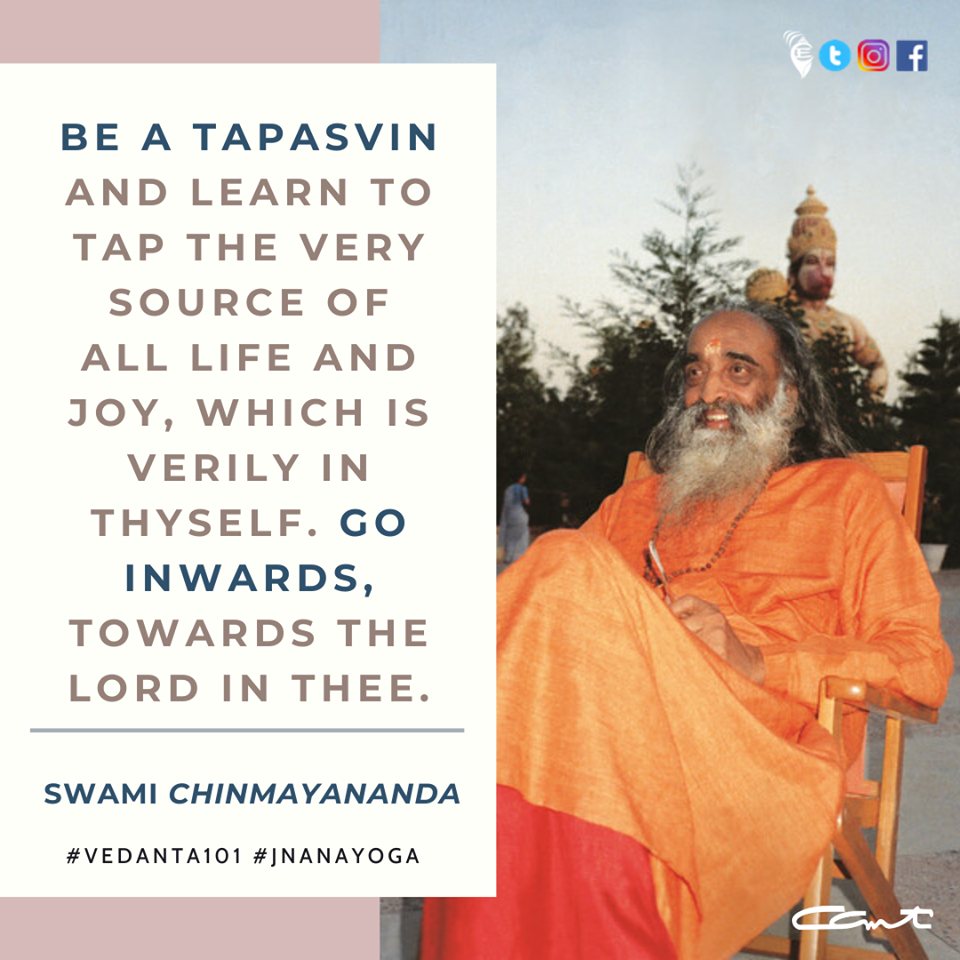The Teachings of the Bhagavadgita - 5.5. Swami Krishnananda.
------------------------------------------------------------
Tuesday, November 10, 2020. 10 : 01. AM.
Chapter 5: Life as a Yajna or Sacrifice - 5.
----------------------------------------------------------------
Emotional involvements are studied in psychoanalysis, sometimes known as 'abnormal psychology'. By a deep understanding of our own self, we may be a healthy person psychically, and psychoanalytically we are perfectly hale and robust. But from the point of view of yoga, we may still be an abnormal person – because abnormality does not necessarily mean being a psychoanalytic patient. There can be a 'metaphysical error' as philosophers would put it, apart from a mere social, political or emotional mistake that we commit. Here it is that yoga goes beyond mere human ways of thinking, much less social and political ways. It is a cosmic way of envisaging everything, which will inject a sort of shock into us. We may begin to shudder even to think of the possibility of there being such a way of encounter with things, and this is the reason why sometimes we feel tremor in the body when we go deep into meditation – a shock which the pranas receive by the impact of the mind upon them, due to the intensity of our concentration on a supernormal level, which goes beyond ordinary human thinking.
-------------------------------
So even if we are emotionally free and a good individual indeed, well adored and respected in humanity, we may not be prepared for yoga; because yoga is a preparation to embrace a reality, which is not necessarily a human world. This is also touched upon, pithily, in some of the aphorisms of Patanjali, which is not my subject at present – I am concerned with the Bhagavadgita. So, coming to the point of yajna, sacrifice, self-control, we seem to conclude that every sacrifice which is true to its spirit involves a metaphysical injection that we give to the psychological process of the mind, a spiritual adventure more than any other kind of human activity or a religious routine. We ascend into a supernormal degree of comprehension in our adventure of vairagya and abhyasa – withdrawal and union. From what do we withdraw ourself, and with what do we commune ourself? The withdrawal, as I mentioned, is not from the substance of the persons and things or the five elements, but from the way, the manner in which they are perceived by the senses, the mind and the intellect. Our opinion about things is what is important, rather than the things themselves. Our understanding is what is our concern, and not what we are understanding – the thing as such. The world, physically speaking, is not so much our concern in yoga as the way in which we are understanding it, and the manner in which we react to it.
------------------------------
Thus the process of vairagya, or detachment, is more a psychological activity rather than a physical performance. It is something that is happening inside in the mind. So we can detach ourselves from things even in the midst of things. Even in the thick of the bustle of people and the noises of the world, we can be detached, because the bustle and the haste, the movement and the noise are not the things that trouble us; the trouble arises from our reaction to them. The world is what it was, and perhaps it will be what it was – nobody can change it, and perhaps there is no need to change it; but there is necessity to change our understanding of it. It is possible to be free from concern with the external events in the world by a modification or an amendment of our outlook or perspective in life, even in the midst of thick activity. Here is the principle of karma yoga coming again: in the midst of intense activity one can be in a state of deep communion with the Ultimate Reality because of the fact that the mind is in the state of vairagya – completely withdrawn from erroneous associations with the events taking place with persons, with things, with activities. On the other hand, one may be in the top of Mount Everest, yet one may be involved in the world process. The thick of the jungle is not necessarily a safe place for the practice of yoga, because the absence of the presence of things, though it is an important thing indeed, is secondary considering our attitude to them. A deeply involved person may be involved even in the thickest forest – and an inwardly detached person may be detached even in the thick street of a large city. If we are honestly intent upon achieving true success in what is called 'yoga', we should not merely pat ourselves on the back and imagine that we are in a state of yoga or religious activity merely because it appears to be so, and people also say so. People may say anything – the saying of the people is no matter with us; it is another thing altogether that worries us and perhaps is our concern.
----------------------------------
To be continued ....
============================================================





Comments
Post a Comment